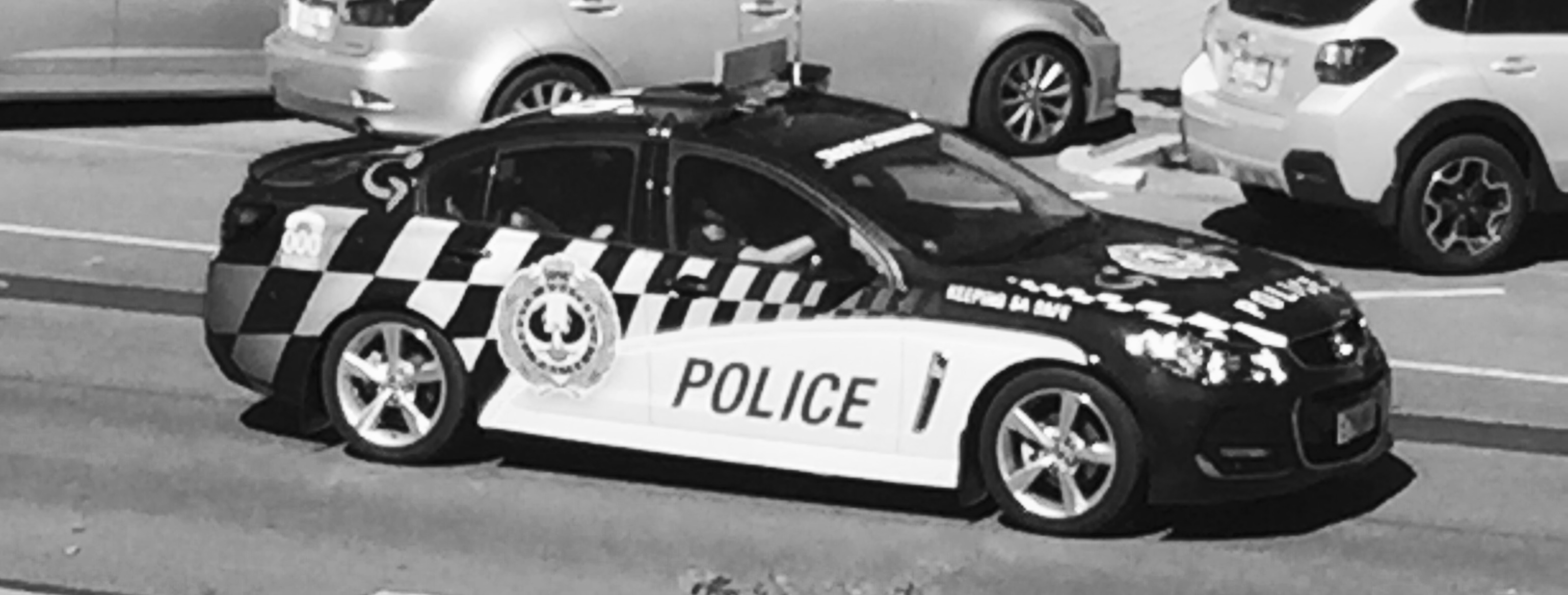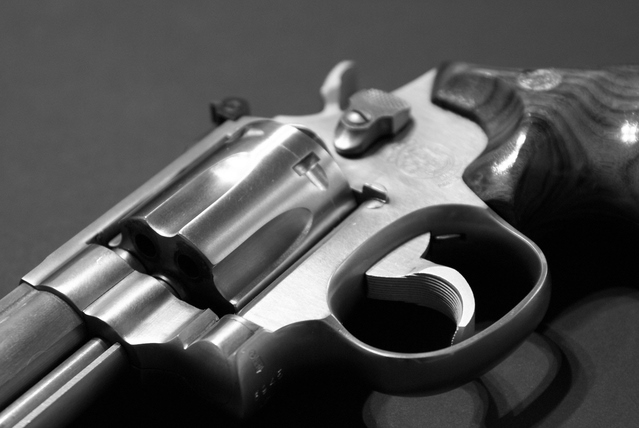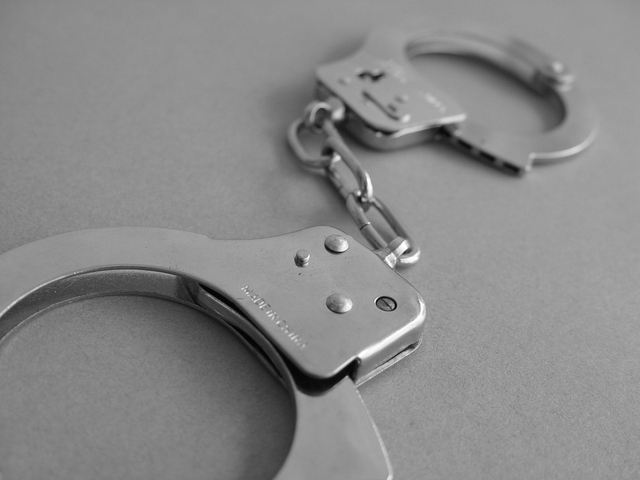Posted on May 5th, 2020.
The penalties (fines) for breaching Coronavirus COVID-19 Restrictions, within South Australia, are imposed pursuant to the Emergency Management Act 2004 (SA). The outbreak of COVID-19 within South Australia has been declared as a Major Emergency. It is a criminal offence to breach a restriction (requirement or direction) imposed in relation to a Major Emergency. For an individual, the fine imposed can vary from $1,000.00 (expiation notice) to a maximum of $20,000.00 (court prosecution).
The restrictions (requirements and directions) imposed within South Australia for reasons associated with the Coronavirus COVID-19 can be found on the Government of South Australia - Legislation Website
>> Section 28 of the Emergency Management Act 2004 states:
28—Failure to comply with directions
(1) A
person must not, without reasonable excuse, refuse or fail to comply with a
requirement or direction of the State Co-ordinator or of an authorised officer
given in accordance with this Act during a declared identified major incident,
major emergency or disaster.
Maximum
penalty:
(a) if the offender is
a body corporate—$75 000;
(b) if the offender is a
natural person—$20 000.
However, an expiation notice can also be issued under the associated Regulations.
>> Regulation 6 of the Emergency Management Regulations 2009 states:
6—Authorised officers may give expiation notices
(1) Subject to the Expiation of
Offences Act 1996, an authorised officer is authorised to
give expiation notices for alleged offences against section 28 of the Act.
(2) The
expiation fee for an offence against section 28 of the Act is fixed at—
(a) in the case of a
natural person—$1 000; or
(b) in the case of a
body corporate—$5 000.
Importantly, it should be noted that an alleged offence may be defended on the basis that there was a ‘reasonable excuse’ for refusing or failing to comply with a restriction (requirement or direction).
Posted on July 26th, 2018.
Craig Fabbian and Fabbian Lawyers have again been acknowledged in the Doyles listings for Leading Criminal Lawyers and Leading Criminal Defence Law Firms within South Australia. Craig Fabbian and Fabbian Lawyers have been repeatedly recognised in the Doyles listings ever since they were introduced within South Australia in 2015. The Doyles listings detail solicitors and firms practising in criminal law matters in the South Australian legal market who have been identified by clients and peers for their expertise and abilities in the area.
>> Doyles 2018 - Leading Criminal Defence Lawyers - South Australia
>> Doyles 2018 - Leading Criminal Defence Law Firms - South Australia
Posted on January 18th, 2017.

Picture from Doyles website - http://doylesguide.com
It is with pleasure that we again advise that Craig Fabbian has recently been named as a leading lawyer in the Doyle’s 2016 listing of leading Adelaide Criminal Lawyers. Additionally, Fabbian Lawyers has been named as a leading Adelaide Criminal Law Firm.
The Doyle’s 2016 listings of leading Adelaide Criminal Lawyers and leading Adelaide Criminal Law Firms detail solicitors and firms practising within the area of criminal defence matters in the Adelaide legal market who have been identified by clients and peers for their expertise and abilities in the area.
It is the second year in a row that Craig Fabbian and Fabbian Lawyers have been named in the Doyle’s Guide Criminal Law listings.
>> Leading Adelaide Criminal Lawyers 2016
>> Leading Adelaide Criminal Law Firms 2016
>> Leading Adelaide Criminal Barristers 2016
Posted on January 18th, 2017.

It is considered a serious offence to drive a motor vehicle whilst your licence is suspended or disqualified. The maximum penalty for a first offence of driving whilst disqualified is imprisonment for six (6) months. The maximum penalty for a subsequent of driving whilst disqualified is imprisonment for two (2) years.
>> Section 91(5) of the Motor Vehicles Act, 1959 states:
“A person must not drive a motor vehicle on a road while his or her licence or learner’s permit is suspended or while disqualified in this State or another State or Territory of the Commonwealth from holding or obtaining a licence or learner’s permit.”
Courts look particularly serious upon offending that has involved defying an order of disqualification. The Supreme Court of South Australia has explained:
“The offence of driving while under disqualification is a most serious offence, as is indicated by the maximum penalty of six months’ imprisonment prescribed by the section. Its seriousness consists in the defiance of the law which it manifests and in the fact that it nullifies the effect of the order of disqualification which is imposed for the protection of the public. The effectiveness of orders of disqualification from holding or obtaining a driver’s licence depends upon observance of them by the persons disqualified. If they are treated with contempt and ignored by the persons affected, the orders of the court designed to deter offenders and to protect the public are rendered ineffective. The ordinary punishment for driving under disqualification must be imprisonment.”
Courts have several options available when imposing a sentence for driving whilst disqualified. As an alternative to imposing an actual term of imprisonment, the court may order a period of home detention, a suspended term of imprisonment, a bond to be of good behaviour or a fine. The court also has the discretion to impose a further licence disqualification.
It is advisable to seek legal advice of charged with driving whilst disqualified. There are defences available to a charge of driving whilst disqualified. Alternatively, if pleading guilty, it is important to seek legal advice to ensure that your bests interests are advanced during the sentencing process.
The information contained within this article is intended as a general overview and discussion of the subjects dealt with. The information provided here was accurate as of the day it was posted; however, the law may have changed since that date. This information is not intended to be, and should not be used as, a substitute for taking legal advice in any specific situation. Craig Fabbian and Fabbian Lawyers are not responsible for any actions taken or not taken on the basis of this information.
Posted on November 6th, 2015.

Picture from Doyles website - http://doylesguide.com
It is with pleasure that we advise that Craig Fabbian has recently been recommended in the Doyle’s 2015 listing of leading Adelaide Criminal Lawyers. Additionally, Fabbian Lawyers was recommended in the listing of leading Adelaide Criminal Law Firms.
The Doyle’s 2015 listings of leading Adelaide Criminal Lawyers and leading Adelaide Criminal Law Firms detail solicitors and firms practising within the area of criminal defence matters in the Adelaide legal market who have been identified by their peers for their expertise and abilities in the area.
>> Leading Adelaide Criminal Lawyers 2015
>> Leading Adelaide Criminal Law Firms 2015
>> Leading Adelaide Criminal Law Barristers 2015
Posted on July 15th, 2015.

It is well known that criminal offences involving firearms can attract serious penalties within South Australia. Commonly prosecuted offences under the Firearms Act 1977 (SA) include:
>> Possession of a firearm without holding a firearms licence - Section 11(1)
>> Possession of a firearm for a purpose that is not authorised - Section 11(2)
>> Trafficking in firearms - Section 14
>> Breach of a condition of a firearms licence - Section 21
>> Possession of an unregistered firearm - Section 23(1)
>> Failure to secure a firearm - Regulation 38
>> Failure to store ammunition separately from firearms - Regulation 41
Penalties for firearms offences can include convictions, fines and even imprisonment. South Australian Courts are also permitted to make orders for the forfeiture of firearms and ammunition. Additionally, Courts are permitted to order the suspension, cancellation or disqualification of firearms licenses.
Further information about firearms licenses and the use of firearms can be obtained from the >> Firearms & Weapons SA Police website
We invite you to contact Craig Fabbian of Fabbian Lawyers if you are charged with a firearms offence.
The information contained within this article is intended as a general overview and discussion of the subjects dealt with. The information provided here was accurate as of the day it was posted; however, the law may have changed since that date. This information is not intended to be, and should not be used as, a substitute for taking legal advice in any specific situation. Craig Fabbian and Fabbian Lawyers are not responsible for any actions taken or not taken on the basis of this information.
Posted on May 19th, 2014.
I am pleading guilty - can I be penalised without receiving a criminal conviction?
Yes. The Criminal Law (Sentencing) Act 1988 allows the court to impose a fine and / or a sentence of community service without recording a criminal conviction. However, the court must be satisfied that certain criteria are met before exercising the discretion. Section 16 of the Act states:
Where a court finds a person guilty of an offence for which it proposes to impose a fine, a sentence of community service, or both and the court is of the opinion—
(a) that the defendant is unlikely to commit such an offence again; and
(b) that, having regard to—
(i) the character, antecedents, age or physical or mental condition of the defendant; or
(ii) the fact that the offence was trifling; or
(iii) any other extenuating circumstances,
good reason exists for not recording a conviction,
the court may impose the penalty without recording a conviction.
Sentencing courts have exercised the discretion in relation to a wide range of offences including theft, assault, cultivating cannabis and minor firearms offences.
It should also be noted that Section 39 of the Act also allows the court, upon a finding of guilt, to discharge a defendant without recording a conviction upon the condition that the defendant enter into a good behaviour bond.
Fabbian Lawyers regularly make sentencing submissions on behalf of defendants seeking that penalties be imposed without the recording of convictions. A successful sentencing application requires thorough preparation combined with careful and persuasive submissions before the relevant sentencing court. It is recommended that a defendant seeking no conviction obtain the assistance of a specialist criminal lawyer.
The information contained within this article is intended as a general overview and discussion of the subjects dealt with. The information provided here was accurate as of the day it was posted; however, the law may have changed since that date. This information is not intended to be, and should not be used as, a substitute for taking legal advice in any specific situation. Craig Fabbian and Fabbian Lawyers are not responsible for any actions taken or not taken on the basis of this information.
Posted on July 17th, 2013.

If you are
charged with a major indictable offence your case will commence in a Magistrates
Court in the criminal jurisdiction.
In the
ordinary course, a criminal case involving a major indictable charge will be required to proceed through a preliminary examination process in a South
Australian Magistrates Court. The process involves a number of court hearings
whereby the prosecution, the Director of Public Prosecutions, is required
provide the evidence they intend to rely upon to prove the charge. Once the
evidence has been provided, the defence will then be in a position to assess
the strengths and weaknesses of the case. The Court is then required to
consider whether or not there is sufficient evidence to prove the charge. If
there is insufficient evidence, the charge may be dismissed by a Magistrate. If
there is sufficient evidence, you will then be required to answer the charge
(plead guilty or not guilty).
Until recently,
at the end of the Magistrates Court process, all major indictable charges needed
to be committed to the District Court or Supreme Court of South Australia for
finalisation (either by a trial or sentencing). However, recent legislative change
allows sentencing for certain major indictable offences to occur in the Magistrates Court. In circumstances where the
person is pleading not guilty, the charge will be committed for trial in a
superior court.
>> SA Magistrates Court Preliminary Examination Process - Flow Chart Guide
What is a major indictable offence? A major indictable
offence is a serious criminal charge which is defined in Section 5 of the Summary Procedure Act. Major indictable offences can include:
- Murder
- Criminal neglect
- Causing death by dangerous driving / Causing serious harm by dangerous driving,
- Causing serious harm & causing harm
- Kidnapping
- Robbery
- Endangering life
- Serious firearm offences including possess firearm to commit offence & certain unlawful possession of firearms
- Drug trafficking, manufacture controlled drugs for sale & cultivate controlled drugs for sale
- Rape & unlawful sexual intercourse
- Production of illegal pornography & possess or access illegal pornography
- Serious criminal trespass (non residential) & serious criminal trespass (residential)
- Bribery, bribery and corruption of public officers & abuse of public office
- Blackmail
- Serious dishonesty offences including theft,
money laundering, deception and dishonestly dealing with documents.
We invite you to contact Fabbian Lawyers should you be charged with any of the above offences. It is recommended that you obtain legal representation should you be charged with a major indictable offence.
The information contained within this article is intended as a general overview and discussion of the subjects dealt with. The information provided here was accurate as of the day it was posted; however, the law may have changed since that date. This information is not intended to be, and should not be used as, a substitute for taking legal advice in any specific situation. Craig Fabbian and Fabbian Lawyers are not responsible for any actions taken or not taken on the basis of this information.
Posted on July 3rd, 2013.
Legislative changes aimed to improve criminal court efficiency within South Australia are now in force. The majority of provisions under the Statutes Amendment (Courts Efficiency Reforms) Act 2012 came into operation on 1 July 2013. When seeking to introduce the legislation, SA Parliament explained:
The primary focus of the Bill is reducing the backlog of criminal cases in the District Court and reducing delays in the finalisation of criminal matters, with the aim of improved efficiency.
The following changes to the South Australian Criminal Justice System include:
The maximum sentence of imprisonment that may be imposed by Magistrates for a single offence has been increased from two years to five years. The maximum sentence of imprisonment that may be imposed by a Magistrate for multiple offences is now limited to ten years (Section 19, Criminal Law (Sentencing) Act 1988)
Magistrates may now impose sentences for certain major indictable offences (Section 9, Magistrates Court Act 1991 and Sections 103, 105 & 108, Summary Procedure Act, 1921)
Magistrates may now impose sentences for major indictable offences (other than treason, murder, or an attempt or conspiracy to commit, or assault with intent to commit, either of those offences) in the Youth Court (Section 14, Youth Court Act 1993)
Courts may make orders to rectify sentencing errors of a technical nature or to supply deficiencies or remove ambiguities in sentencing orders. (Section 9A, Criminal Law (Sentencing) Act 1988)
Determinations or orders made by judges in earlier proceedings are now to be binding on trial judges (Section 285AB, Criminal Law Consolidation Act, 1935)
Coincidently, the above changes have come into force shortly after it has been stated that recent retiring judges will not be replaced due to budget restrictions. The failure to replace such judges is expected to impact adversely on the efficiency of the courts.
>> Statutes Amendment (Courts Efficiency Reforms) Act 2012
>> Statutes Amendment (Courts Efficiency Reforms) Bill - Second Reading Speech
The information contained within this article is intended as a general overview and discussion of the subjects dealt with. The information provided here was accurate as of the day it was posted; however, the law may have changed since that date. This information is not intended to be, and should not be used as, a substitute for taking legal advice in any specific situation. Craig Fabbian and Fabbian Lawyers are not responsible for any actions taken or not taken on the basis of this information.
Posted on February 1st, 2013.

The criminal justice system is
faced with the significant challenge of seeking to cope with the rapid
advancement in modern technologies. Laws and procedures within the system must
adapt to address advancements particularly in the area of electronic
communications. Additionally, the system now faces greater difficulties
ensuring fairness is achieved in criminal trials in light of the developments
of the internet, social media and social networking.
The South Australian Law Reform
Institute has recently released its final report on ‘Modernisation of South
Australian evidence law to deal with new technologies.’ Included within the
report is a series of recommended changes to the Evidence Act 1929 (SA) to address modern technologies including evidence
arising from electronic communications.
Interestingly, the Supreme Court
of South Australia has also recently considered the dangers associated with identification
evidence and the use of facebook. In the criminal appeal case of Strauss v
Police, the Supreme Court quashed an assault conviction that was, in part,
reliant upon the identification of an accused person by accessing photographs
on facebook. The decision provides a detailed explanation of how social media
websites, including facebook, can substantially increase the risk of evidence contamination
in criminal cases.
>> SALRI ‘Modernisation of South Australian evidence law to deal with new technologies’ - Final Report
>> Strauss v Police [2013] SASC 3
Next






